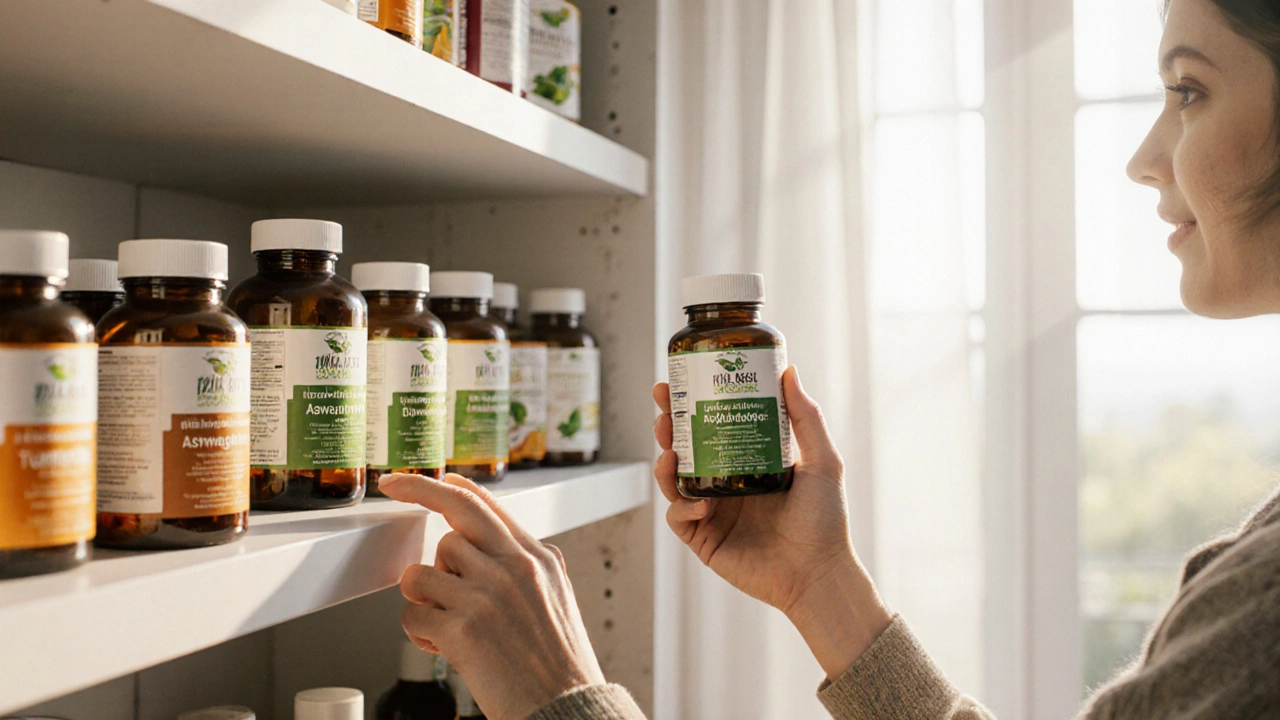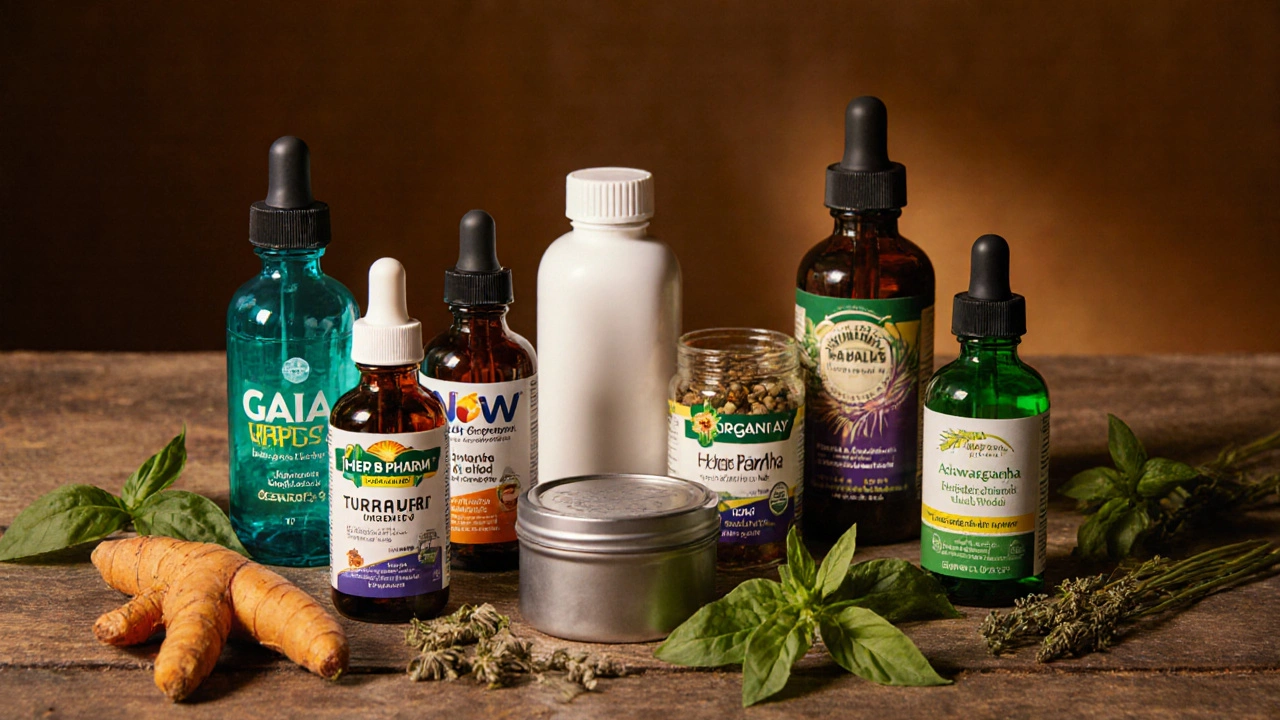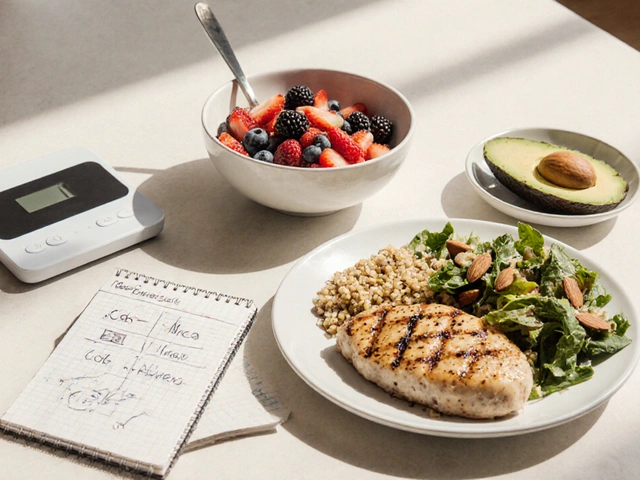
Finding trustworthy herbal supplements is a pain point for anyone who wants natural support without mystery ingredients. With dozens of manufacturers flooding the market, you probably wonder which names actually deliver quality, safety, and consistent results. This guide cuts through the noise and shows you the best herbal supplement brands for 2025, how they stack up on key criteria, and what to look for on the label before you click ‘add to cart’.
How to Spot a Reliable Herbal Supplement Brand
Even before we name the leaders, it helps to know the red flags and green lights that separate reputable makers from the rest. Below are the core attributes to check:
- GMP certification - Good Manufacturing Practice means the facility follows strict quality‑control rules set by regulatory bodies.
- Standardized extracts - Guarantees a specific amount of active compounds (e.g., 5% withanolides in ashwagandha) per dose.
- Third‑party testing - Independent labs verify purity, potency, and the absence of heavy metals or contaminants.
- Transparent sourcing - Look for details about where the herbs are grown and whether they are organic or wild‑crafted.
- Allergen and vegan labeling - Clear info lets sensitive users avoid hidden dairy, soy, or gelatin.
- Customer reviews and clinical backing - Brands that publish research or have a strong community of verified buyers earn extra trust.
Top Herbal Supplement Brands in 2025
We evaluated more than 30 companies using the checklist above, plus price‑point and product range. Here are the seven that consistently score high across the board.
Gaia Herbs is a US‑based brand that focuses on liquid phyto‑capsules and offers full traceability from seed to shelf. Their products are USDA‑organic certified, and every batch undergoes third‑party testing for potency and contaminants.
- Signature product: Turmeric Supreme (standardized to 95% curcumin).
- Price: Mid‑range ($25‑$35 per bottle).
- Vegan: Yes.
Nature's Way has been around since the 1960s and boasts a broad catalog that includes adaptogens, immune boosters, and sleep aides. Their “Standardized Herbal Extracts” line guarantees exact active compound percentages.
- Signature product: Standardized Ashwagandha (5% withanolides).
- Price: Affordable ($15‑$20 per bottle).
- Vegan: Most formulas are vegan.
NOW Foods is known for a no‑frills approach, offering large batch sizes at low cost while still meeting GMP standards. Their herbal line includes both capsule and powder forms.
- Signature product: Organic Milk Thistle (standardized to 80% silymarin).
- Price: Budget friendly ($10‑$15 per bottle).
- Vegan: Yes, most products.
Solaray specializes in blends that target specific wellness goals, such as joint health or stress relief. Their formulations are often combined with vitamins for synergistic effects.
- Signature product: Joint Support Complex (turmeric, boswellia, glucosamine).
- Price: Mid‑range ($20‑$30 per bottle).
- Vegan: Many blends are vegan.
Herb Pharm focuses on liquid extracts made from certified organic herbs. Their “tincture” format is popular among users who dislike swallowing pills.
- Signature product: Organic Ginseng Tincture.
- Price: Higher end ($35‑$45 per bottle).
- Vegan: Yes, alcohol‑based tinctures are vegan.
New Chapter merges whole‑food nutrition with herbal science, using fermented blends that claim better absorption. Their “Whole‑food Multivitamin” includes herbal adaptogens.
- Signature product: Adaptogenic Wellness Stress Relief.
- Price: Premium ($30‑$40 per bottle).
- Vegan: Most formulas are vegan.
Organic India is an Indian brand that emphasizes sustainably harvested, fair‑trade herbs. Their “Tulsi” (holy basil) line is a bestseller worldwide.
- Signature product: Organic Tulsi (Holy Basil) Capsules.
- Price: Budget to mid‑range ($12‑$22 per bottle).
- Vegan: Yes.
Side‑by‑Side Brand Comparison
| Brand | GMP Certified | Third‑Party Tested | Standardized Extracts | Organic Options | Vegan‑Friendly | Avg. Price per Bottle |
|---|---|---|---|---|---|---|
| Gaia Herbs | Yes | Yes | Yes | Many | Yes | $30 |
| Nature's Way | Yes | Yes | Yes | Selective | Yes | $18 |
| NOW Foods | Yes | Yes | Yes | Yes | Yes | $12 |
| Solaray | Yes | Yes | Yes | Partial | Yes | $25 |
| Herb Pharm | Yes | Yes | Yes | Many | Yes | $40 |
| New Chapter | Yes | Yes | Yes | Many | Yes | $35 |
| Organic India | Yes | Yes | Yes | All | Yes | $17 |
Practical Tips for Buying Herbal Supplements
Even with a trusted brand list, a few habits keep you on the safe side:
- Read the supplement facts label. Look for exact dosage (e.g., 500 mg of standardized extract) rather than vague “herb blend” claims.
- Check the expiration date. Potency drops over time, especially for volatile oils in turmeric or black pepper extracts.
- Verify the batch number. Reputable companies print it on the bottle so you can cross‑reference with their website’s lab report.
- Watch for allergens. If you’re gluten‑free or dairy‑intolerant, ensure the label explicitly says “gluten‑free” or “dairy‑free.”
- Start with a low dose. Herbs can interact with meds; a gradual introduction helps gauge tolerance.
Common Pitfalls to Avoid
Many shoppers fall into traps that waste money or even risk health. Here’s what to watch out for:
- “All‑natural” hype - If a product claims 100% natural but has no certifications, dig deeper.
- Inflated serving sizes - Some brands push a “two‑capsule” dose to hit a price point, but the actual active ingredient may be half of what you expect.
- Unverified “clinically proven” statements - Look for citations to real studies, not vague marketing copy.
- Cheap imports without lab reports - Low cost often means no third‑party testing, increasing contamination risk.

Quick Checklist Before You Checkout
- ✅ GMP certified facility?
- ✅ Third‑party lab results posted?
- ✅ Standardized to a specific % of active compounds?
- ✅ Transparent sourcing (organic, wild‑crafted, region listed)?
- ✅ Allergen info clear?
- ✅ Price matches market average for the dosage?
Frequently Asked Questions
Are herbal supplements regulated by the FDA?
In the United States, herbal supplements fall under the Dietary Supplement Health and Education Act (DSHEA). The FDA can act against unsafe products, but manufacturers do not need pre‑market approval. That’s why third‑party testing and GMP certification become crucial signals of quality.
What does “standardized extract” mean?
Standardization guarantees a consistent amount of the herb’s key active molecules-like 5% withanolides in ashwagandha or 95% curcuminoids in turmeric. This consistency helps ensure you get the expected effect dose after dose.
Can I take herbal supplements with prescription meds?
Some herbs interact with drugs-St. John’s wort, for example, can affect antidepressants. Always consult a healthcare professional before layering supplements on top of prescription treatments.
How long does it take to feel results?
Herbal adaptogens usually need 2-4 weeks of consistent use for the body to adapt. Acute herbs like ginger may show relief within minutes, but long‑term benefits still require regular dosing.
Are there vegan‑friendly options?
Most of the top brands listed-Gaia Herbs, NOW Foods, New Chapter, and Organic India-offer fully vegan formulas. Check the label for gelatin or dairy‑derived binders if you’re strict about it.
Categories
Popular Articles

Oct 12 2025

Feb 24 2025



